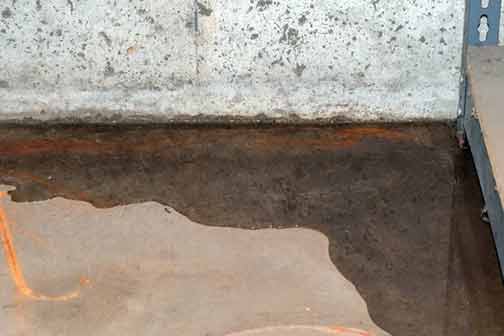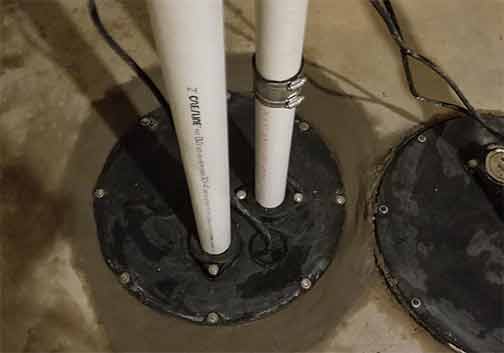
Basements often serve as valuable living space or storage areas in our homes, providing us with a versatile and functional extension of our living areas. However, they are also susceptible to various water-related issues, posing a threat to our property and health. To combat these problems, it is crucial to understand the causes of basement water issues and the significance of sewage ejector pumps in safeguarding our homes.
Understanding Basement Water Problems
Basement water problems can arise due to an array of factors, ranging from external sources to internal plumbing issues. Common causes include:
- Heavy rainfall or melting snow leading to water seepage through foundation walls or flooring.
- Improper grading around the house, causing water to pool near the foundation.
- Faulty gutters or downspouts that fail to direct water away from the house.
- Burst or leaking pipes, resulting in indoor flooding.
- Natural groundwater accumulation due to a high water table.
These water problems not only pose a risk to the structural integrity of your home but can also promote the growth of mold, mildew, and other harmful microorganisms. Therefore, it is essential to address these issues promptly to prevent further damage and ensure a safe living environment.
The Role of Sewage Ejector Pumps
One vital line of defense against basement water problems is the installation of a sewage ejector pump. While often overlooked, these pumps play a crucial role in efficiently removing wastewater from your home and preventing sewage backups.
Sewage ejector pumps are specifically designed to handle solid waste and wastewater from places below the main sewage line or at a lower elevation. They are typically found in basements, where bathrooms, laundry rooms, or other plumbing fixtures are located below the level of the local sewer lines.
These pumps are equipped with sealed basins or holding tanks where the wastewater collects. Once the liquid reaches a certain level, the pump activates and propels the waste through a discharge pipe, directing it towards a municipal sewer system or a septic tank.

Sewage ejector pumps are essential in preventing these backups by expelling wastewater effectively, reducing the risk of sewage overflow.
The Importance of Sewage Ejector Pumps
1. Preventing Sewage Backups:
A sewage backup in your basement can be a catastrophic event, leading to extensive property damage and health hazards. Sewage ejector pumps are essential in preventing these backups by expelling wastewater effectively, reducing the risk of sewage overflow.
2. Protecting Your Property:
Basement water problems and subsequent flooding can cause severe damage to your home’s foundation, walls, flooring, and personal belongings. By installing a sewage ejector pump, you can minimize the risk of water-related destruction and preserve the structural integrity of your property.
3. Ensuring Health and Hygiene:
Wastewater contains numerous bacteria, viruses, and other pathogens that pose a significant health risk to you and your family. Sewage ejector pumps prevent the accumulation of wastewater, reducing the potential for harmful microorganisms to thrive in your basement, and maintaining a sanitary living environment.
Choosing the Right Sewage Ejector Pump
When considering the installation of a sewage ejector pump, it is crucial to select the appropriate pump for your specific needs. Factors to consider include:
- The size and capacity of the pump, ensuring it can handle the anticipated wastewater volume.
- The quality and durability of the materials used, promoting long-term reliability.
- The pump’s power and efficiency, determining its ability to effectively handle solid waste.
- The availability of backup power systems in case of electricity outages.
- The level of noise produced by the pump during operation.
Speaking with a professional plumber nearby or a knowledgeable expert can provide invaluable guidance in selecting the most suitable sewage ejector pump for your specific requirements.
Maintaining Your Sewage Ejector Pump
To ensure the optimal functioning of your sewage ejector pump and avoid potential issues, regular maintenance is crucial:
- Inspect the pump and the basin regularly for any signs of damage or deterioration.
- Clean the basin to remove any dirt or debris that may hinder the pump’s operation.
- Test the pump periodically to ensure it activates when the water level reaches the appropriate level.
- Consider professional servicing at regular intervals to detect and address any potential problems.
Adhering to a maintenance routine will not only extend the lifespan of your sewage ejector pump but also provide peace of mind, knowing that your home is protected from basement flooding problems.
In Conclusion
Basement water problems can have dire consequences for both the structural integrity of your home and the health of its occupants. By understanding the causes of these issues and recognizing the importance of sewage ejector pumps, you can take the necessary steps to protect your home.
Sewage ejector pumps play a vital role in preventing basement water problems, such as sewage backups, by efficiently expelling wastewater from your home. Additionally, these pumps help preserve your property, maintain a healthy living environment, and safeguard against potential damage caused by flooding.
When considering the installation of a sewage ejector pump, it is crucial to select the appropriate pump for your specific needs and adhere to a regular maintenance routine to ensure its optimal performance. By doing so, you can effectively mitigate basement water problems and enjoy the full benefits of a safe and protected home.


